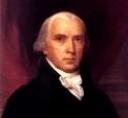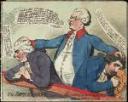Our favorite quotes: Rutherford B. Hayes
 Law without education is a dead letter. With education the needed law follows without effort and, of course, with power to execute itself; indeed, it seems to execute itself.
Law without education is a dead letter. With education the needed law follows without effort and, of course, with power to execute itself; indeed, it seems to execute itself.
Rutherford Birchard Hayes (1822–1893), U.S. president: Diary and Letters of Rutherford Birchard Hayes: Nineteenth President of the United States, vol. IV, p. 103, ed. Charles Richard Williams, The Ohio State Archaeological and Historical Society, 5 vols. (1922-1926), Diary (January 23, 1883).



 June 12th marks the anniversary of the US Supreme Court’s 1967 decision in the
June 12th marks the anniversary of the US Supreme Court’s 1967 decision in the  Intellectual Property is a broad class of property, similar to ‘real estate’ (land), and ‘chattels’ (movable physical goods). It generally includes four very different kinds of rights:
Intellectual Property is a broad class of property, similar to ‘real estate’ (land), and ‘chattels’ (movable physical goods). It generally includes four very different kinds of rights:  Law is nothing other than a certain ordinance of reason for the common good, promulgated by the person who has the care of the community.
Law is nothing other than a certain ordinance of reason for the common good, promulgated by the person who has the care of the community. Most Americans consider privacy one of their most prized rights, yet the word isn’t even mentioned in the
Most Americans consider privacy one of their most prized rights, yet the word isn’t even mentioned in the  It will be of little avail to the people, that the laws are made by men of their own choice, if the laws be so voluminous that they cannot be read, or so incoherent that they cannot be understood; if they be repealed or revised before they are promulgated, or undergo such incessant changes that no man, who knows what the law is to-day, can guess what it will be to-morrow.
It will be of little avail to the people, that the laws are made by men of their own choice, if the laws be so voluminous that they cannot be read, or so incoherent that they cannot be understood; if they be repealed or revised before they are promulgated, or undergo such incessant changes that no man, who knows what the law is to-day, can guess what it will be to-morrow. The crime of battery is the actual infliction of harm; combined with the crime of assault, it is the threat and action of inflicting harm. Battery is also a civil wrong for which a victim can file for damages.
The crime of battery is the actual infliction of harm; combined with the crime of assault, it is the threat and action of inflicting harm. Battery is also a civil wrong for which a victim can file for damages. In all forms of government the people is the true legislator.
In all forms of government the people is the true legislator. Some of us here at the LII are already looking forward to the
Some of us here at the LII are already looking forward to the  Because just as good morals, if they are to be maintained, have need of the laws, so the laws, if they are to be observed, have need of good morals.
Because just as good morals, if they are to be maintained, have need of the laws, so the laws, if they are to be observed, have need of good morals.